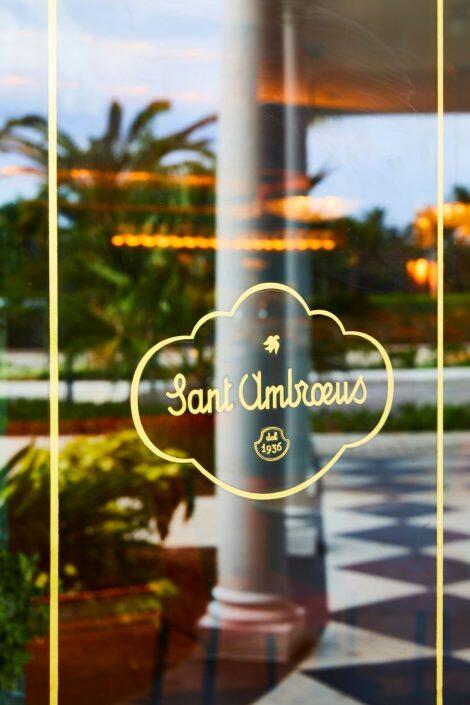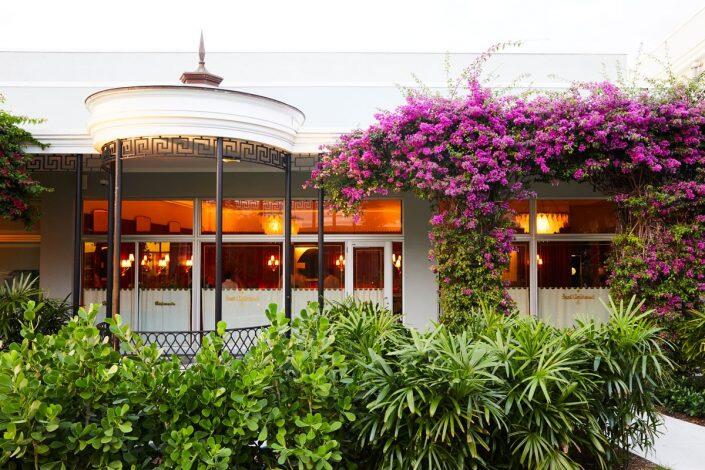Trending
New York restaurant operator sues to end Bal Harbour Shops deal
The owner of Sant Ambroeus and Felice, two popular dining spots in the Big Apple, is seeking to rescind leases and cancel openings

The owner of New York City Italian dining hotspots Sant Ambroeus and Felice claims rising construction costs derailed its restaurant opening at Bal Harbour Shops, according to a recently filed lawsuit.
An affiliate of SA Hospitality Group, led by co-founder and Chairman Gherardo Guarducci, sued Bal Harbour Shops in Miami-Dade Circuit Court earlier this week. The complaint seeks to rescind two 2019 leases for a Sant Ambroeus location on the luxury shopping center’s second floor and a commissary store on the third floor.
Sant Ambroeus and Felice, which have various locations in New York, were slated to open their first Miami-Dade County outposts at Bal Harbour Shops next year, according to published reports. The mall is undergoing a $400 million expansion and renovation. Sant Ambroeus already operates a restaurant in Palm Beach.

Sant Ambreous Palm Beach (Source: Sant Ambreous)

Sant Ambreous Palm Beach (Source: Sant Ambreous)
According to the leases attached to the lawsuit, SA Hospitality Group signed on for 15 years and agreed to pay $58,333 a month, plus a percentage of gross sales exceeding $8 million, for a 3,264-square-foot space. It also agreed to pay $30,503 a month, plus a percentage of gross sales exceeding $2.7 million, for a 2,756-square-foot space.
In its lawsuit, SA Hospitality Group claims it cannot afford to build out the restaurant and commissary store after the initial construction budget of $4.2 million doubled in price. The restaurant operator is also accusing Bal Harbour Shops of refusing to financially assist in offsetting the construction cost increase.
A spokesperson for mall owner Whitman Family Development declined comment. According to the two leases, any costs that exceed the initial estimate are the sole responsibility of the tenant.
In a statement, SA Hospitality Group said the company and Bal Harbour Shops were unable to reach a favorable resolution to an “unforeseeable and unfortunate situation.”
“Notably, it is not in the DNA of SA Hospitality Group to be involved in any litigation with a landlord….Further, we also have a profound amount of respect for our landlord at Bal Harbour Shops and what they have accomplished over many years,” the statement said.
It’s not the first time Bal Harbour Shops’ landlord plays hardball with a high-profile tenant since the center reopened in the summer of 2020 after Covid-19 business lockdowns. Bal Harbour Shops and its longest running anchor tenant, Saks Fifth Avenue, are currently locked in a vicious legal battle in Miami-Dade Circuit Court and Miami federal court. Bal Harbour Shops alleged Saks owes more than $1.8 million in rent and wants the department store to return a portion of an $18 million construction advance. Saks countersued Bal Harbour Shops for defamation.
According to the SA Hospitality Group lawsuit, the business consequences of Covid-19 have resulted in rising costs for building materials and labor, as well as delays. The buildout doubled in price even before SA Hospitality Group could break ground, the complaint states.
SA Hospitality Group attempted to negotiate with Bal Harbour Shops, including requesting that the landlord foot half of the bill for the additional costs, the lawsuit states.
Bal Harbour Shops declined, and sent SA Hospitality Group a demand letter last week for $2.6 million in non-refundable construction costs, the complaint alleges. The letter, which is attached to the lawsuit, notes the lease language stating the tenant is responsible for any costs exceeding the initial estimate.
SA Hospitality Group claims it cannot afford to pay the $2.6 million toward a project that has gone way over budget. The company has already paid $768,440 in pre-construction costs, the complaint states.




